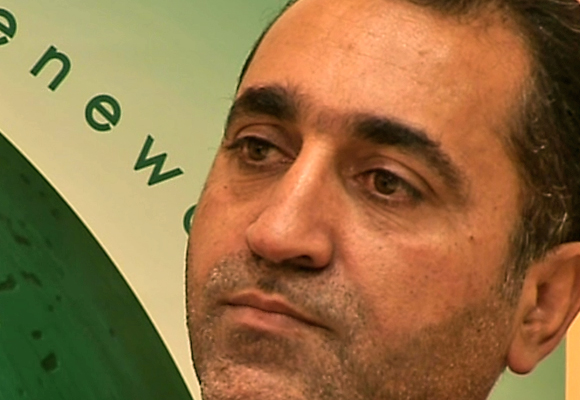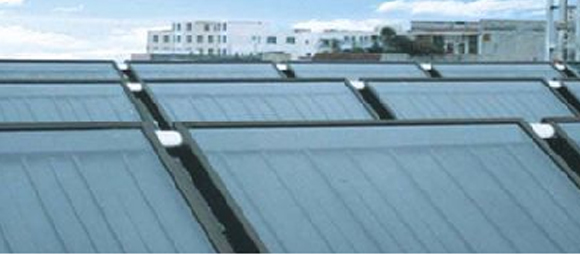Jordan Renewables
We have adopted a National Energy Strategy that is driving Jordan to be a net exporter of energy by 2030.
Interview with Moyad Awad, General Manager, Clean Energy Concepts

With the national energy security at stake, what should be done to avert the possible energy crisis ?
Jordan has spotted the international trend where even oil-rich countries have opted to move towards renewable resources, because it makes sense from an environmental, economic, strategic, and security of supply point of view. Jordan has been among the first signers of Desert-Tech Initiative which was initiated as part of the Rome Club. Jordan has been at the forefront of renewable or alternative energy supplies. We have adopted a National Energy Strategy that is driving Jordan to be a net exporter of energy by 2030.
Renewables require a lot of subsidies and are not competitive as of yet. How difficult is it to advocate this cause in the government and society ? How much resistance are you facing ?
As with any new concept, this is a natural reaction you expect from people who don’t understand the full picture. When you begin, the cost is high, but if you look at the examples around us, the economies of scale will start to affect the equation and reduce the price. India started with wind technology around five years ago with very high costs.
Now the cost of 1 kilowatt hour of wind turbines in India is less than 8 cents. Natural gas continues to be the most competitive resource with the lowest cost, but burning it to make electricity is not the best use for it. Jordan relies 75% on natural gas. What we are proposing for wind and for solar is much lower than the current costs for Diesel and is not far away from Heavy Fuel Oils.

Do you feel your cause may be challenged by nuclear prospects for the future ?
Nuclear is mega scale, however, it is not cheap and requires an investment of over 6 billion for 1000 MW, and more than 30 years of payback. So economically, no, nuclear is not really a direct competitor. It is a viable resource and there has to be a sovereign decision to pursue it. Renewable energy is the future for electricity generation ; it is free after you install it and it’s clean, unlike nuclear radiation. Around the world, countries are adopting renewable resources as their future energy source.
What was the original idea behind the establishment of your company ?
National strategies and agendas do not happen by themselves ; the private sector is the vehicle to make these initiatives work. CEC is a vehicle that will help the Jordanian economy to materialize its aspiration in terms of renewable energy in context of the National Energy Strategy. The company is set to look at all kinds of resources, to be a platform for international companies who would like to do business in the MENA region at large. We are the local partner for big companies who are already well-vested to invest in the renewable energy sector.
The investment is considerable, and we need to partner with companies who have already achieved economies of scale, and who have access to finance. We know the local parameters of doing business ; the local element is very important because we will be driving the local value addition. We look at renewable energy as an industry that will create jobs for the wealth of skilled Jordanian youth and engineers.
How do you plan to attract investors, and secure financing ? How do you work in practice ?
We have already signed with companies who have developed, constructed, and operated similar projects worldwide. International investors look at where it makes sense for them to invest. Jordan has three key attractions : politically Jordan is very stable and has been an example for the region. It lies on the sunshine belt, so sunshine is very abundant. Wind resources are abundant as well. Last, we have a massive reservoir of talented and educated people. These things are what foreign investors are looking for.
Operating costs here are lower than Europe and the US, the country has a very good network with the neighboring countries, being connected electrically with Egypt from the south and Syria from the North. The connection goes all the way to Turkey. All these are ingredients for success. We are developers ; we bring the funds, pay part of the equity, solicit with big institutions around the world who have funds dedicated to renewable energy.
Our financial structure is built on two parameters : the international parameter where the multinational company will come in, with its resources, track record, and balance sheet, which is attractive to bankers. We can raise enough capital to be equity partners. We help raise the funds for the debt and we work with our strategic partners to come up with the complete finance for the project.
Are you going to sub-contract the projects that will come in ?
We are going to be the co-owners of a special purpose vehicle company that will be established in Jordan with the candidate strategic partner. We give the partner the responsibility of lump sum turn key EPC contract basis. This means the cost is fixed. We bring our own staff to be working hand in hand with the strategic partner to get the technology transfer and to build our own R&D.
What are some of the potential hurdles that can endanger your plan ?
The most important thing that we have to do as Jordanians is sort out the legislation part of the equation. We have recently issued the renewable energy law as a temporary law back in February 2010 that was a big milestone. Now the by-laws have to come next about specifics : what kinds of tariffs for the different technologies, scales of projects, imports vs exports.
We expect these to be finalized within the coming 4 to 6 months. Legislation needs to be done effectively and in a way that attracts investors.